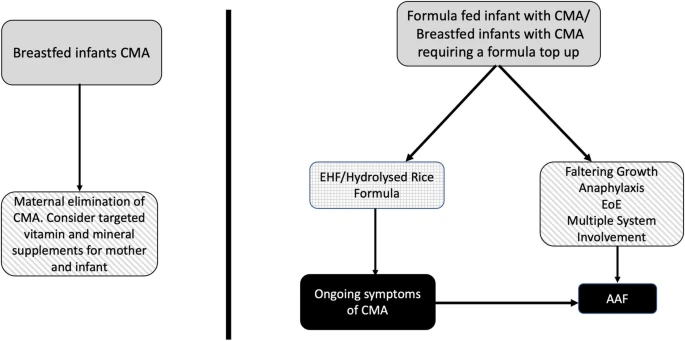Current Treatment Options in Allergy 9, 375–393 (2022)
Abstract
Purpose of the Review
The purpose of the review is to review the evidence for the nutritional management of paediatric food allergy and provide a practical approach for healthcare professionals working in this area.
Recent Findings
Dietary elimination remains the mainstay for management of food allergies in children. However, the elimination of food allergens increases the risk for growth faltering, micronutrient deficiencies and feeding difficulties. Breastmilk remains the ideal source of nutrition for infants, but when not available, the vast majority will tolerate an extensively hydrolysed formula, and rice hydrolysate has also been suggested as a suitable alternative. Only in severe cases, including anaphylaxis, eosinophilic oesophagitis and growth faltering, is an amino acid formula indicated. The early introduction of peanut and egg and avoiding the delay in the introduction of other allergens, when not already allergic, has been highlighted by recent studies.Summary
Whilst the elimination of allergens increases the risk of developing poor growth, micronutrient deficiencies and feeding difficulties, optimal, early dietary input, including advice on active introduction of allergens and alternative feeds, ideally from a registered dietitian/nutritionist, may be prevent and improve outcomes.


No comments:
Post a Comment